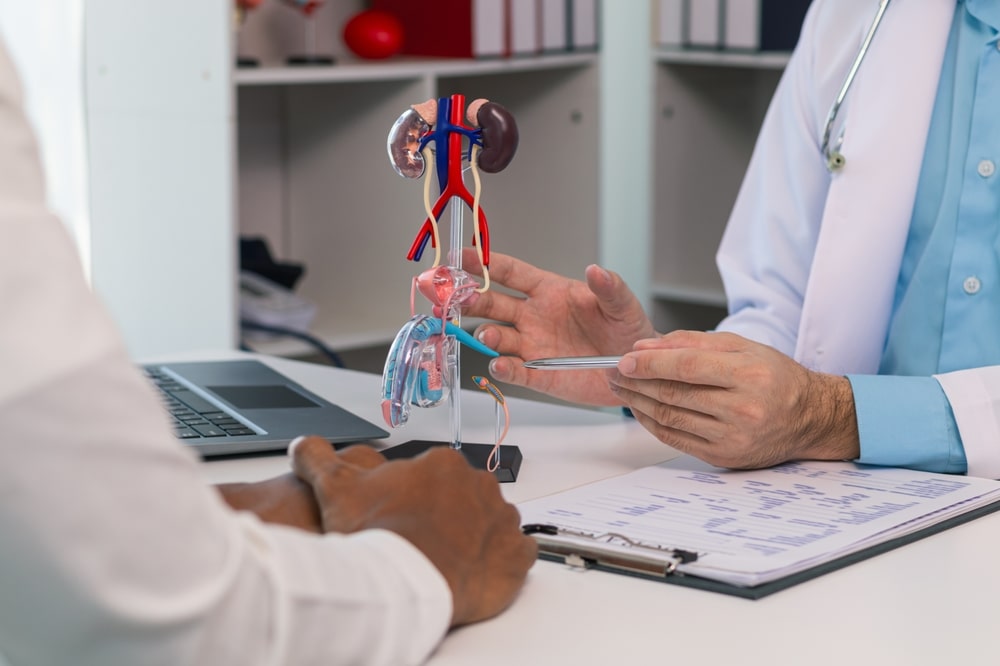Erectile dysfunction (ED), is a penile disorder which affects a man's ability to gain or maintain an erection. It’s a very common men's health problem, with most men experiencing it at some point in their lifetime, but it’s most common in men over the age of 40.
For some men, erectile dysfunction affects them only occasionally, but for others, it can be a regular occurrence which affects their ability to have a sexual relationship. Erectile dysfunction can affect your relationships, and self-esteem and can also affect your ability to start a family, so it’s important to see a specialist for treatment.
What are the symptoms of erectile dysfunction?
The symptoms of erectile dysfunction consist of:
- Difficulty getting or inability to get an erection
- Trouble maintaining an erection
- Reduced sexual desire
It’s important to know that erectile dysfunction may only occur in certain situations. For example, you may be able to get and maintain an erection when masturbating privately, but are unable to do so when you are attempting intercourse with a partner.

Erectile dysfunction can be placed into several categories based on the cause:
Vascular erectile dysfunction is the most common type of erectile dysfunction. This is where the blood flow to the penis that’s needed to create and maintain an erection is affected by a vasculogenic condition such as cardiovascular disease or high blood pressure. Diabetes is also a common risk factor due to the effects on small vessels as well as the nerves.
Neurogenic erectile dysfunction occurs as a result of disruption with the nerves to the penis, which prevent signals from travelling from the brain to the penis to create an erection. This can be caused by pelvic surgery such as prostate operations, multiple sclerosis, Parkinson’s disease, a spinal injury or disorder, a stroke, radiation therapy or trauma.
Hormonal erectile dysfunction can occur as a result of hormonal conditions, such as hypogonadism which cause a reduction or increase in certain hormones including testosterone and cortisol.
Anatomical erectile dysfunction is where a condition, such as Peyronie’s disease, affects the tissue of the penis making it difficult to get an erection.
Psychogenic erectile dysfunction involves psychological conditions that affect your thoughts, feelings or behaviour, which can cause erectile dysfunction. Anxiety and depression are the most common psychological causes of erectile dysfunction, but your ability to get and maintain an erection may also be a result of relationship problems or being in a new relationship, a lack of sexual experience or knowledge, past sexual problems or sexual abuse.
Other factors that may affect your ability to get or maintain an erection include:
- Certain medications, such as diuretics, antidepressants and corticosteroids
- Excessive alcohol
- Illegal drug use, such as cannabis or cocaine
- Fatigue
- Obesity
- Sleep disorders
At OneWelbeck, our consultant urologists can make a diagnosis of erectile dysfunction during an initial consultation. Your consultant will perform a physical examination and take your medical history. They will then ask you questions about your experience getting and maintaining an erection and when or why you think you are experiencing problems. This will help your specialist identify the cause of your erectile dysfunction so that they can recommend the most appropriate treatment. You may also need to have some tests done such as blood tests, urine tests and imaging.

Treatment of erectile dysfunction focuses on addressing the underlying cause of the condition.
- Lifestyle changes, such as regular exercise, stopping smoking, reducing or stopping alcohol consumption or drug use, and reducing stress
- Oral medications such as PDE 5 inhibitors to increase blood flow to the penis
- Injections into the penis to induce erections
- Penis pumps or vacuum erection devices
- Low-intensity shockwave treatment
- Surgery in the form of a penile prosthesis
- Psychosexual counselling can also help



